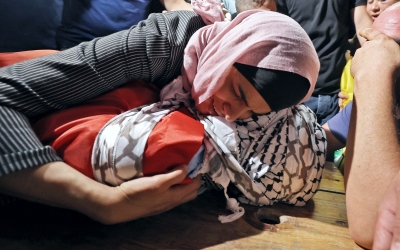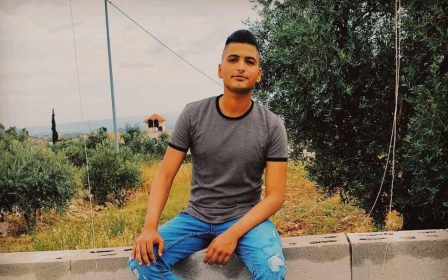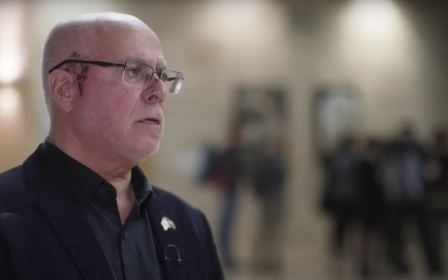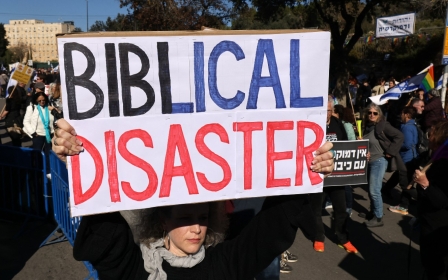International courts won’t stop Israel’s occupation, but they can shift narratives
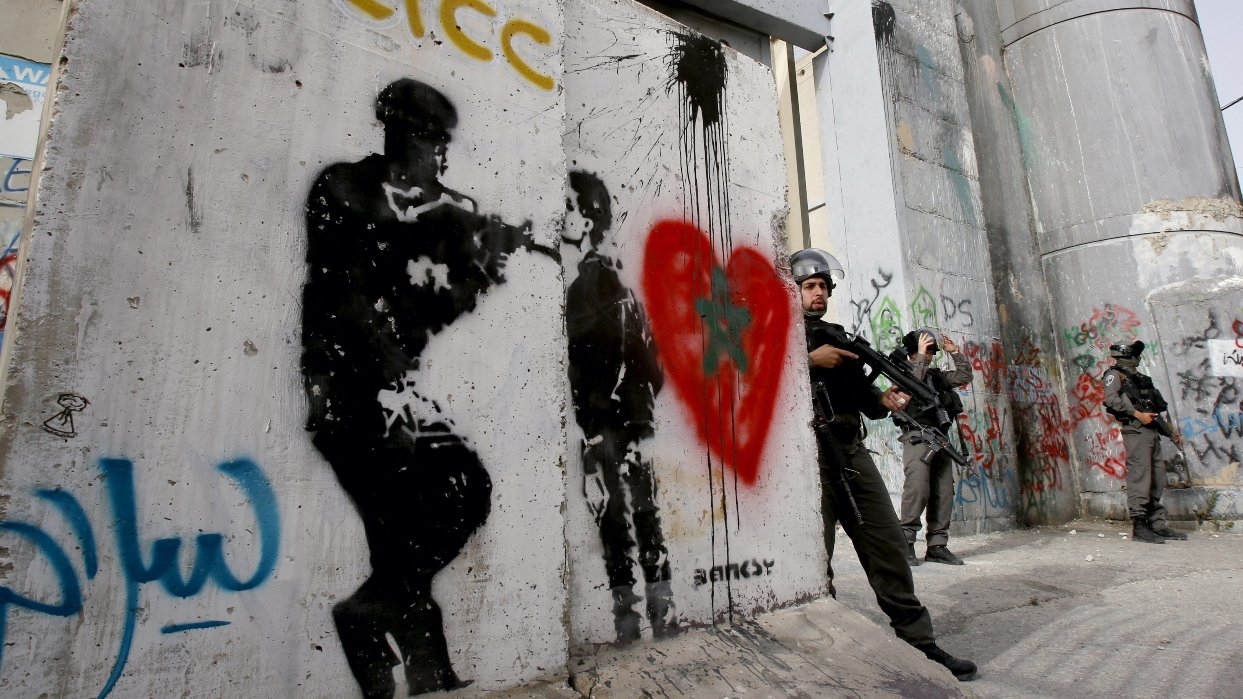
The passing of a United Nations resolution requesting the International Court of Justice (ICJ) to weigh in on the Israeli occupation has given a major diplomatic victory to the Palestinians.
However, the ICJ, which settles disputes between countries, has no power to enforce its opinions despite them being legally binding. So what consequences would an advisory opinion from the international court have for Israel and the Palestinian territories?
The resolution, passed by the UN General Assembly last Friday, calls for the ICJ to "urgently" weigh in on Israel's "prolonged occupation, settlement and annexation of the Palestinian territory", which it said violated the Palestinians' right to self-determination.
It refers to Palestinian lands occupied by Israel since the 1967 war - the West Bank, Gaza and East Jerusalem - and policies aimed at "altering the demographic composition, character and status of the holy city of Jerusalem".
The UN resolution asks the court for an opinion on how these Israeli policies and practices "affect the legal status of the occupation, and what are the legal consequences that arise for all states and the United Nations from this status?"
Palestinian policy experts and academics say that while any ICJ decision critical of Israel would help Palestinians in terms of raising awareness, it would do little to hold Israel accountable and stop its policies against Palestinians, which a number of human rights groups have labelled as apartheid.
"A decision by the ICJ would represent a symbolic victory for Palestinians on the international stage, but it is unlikely that it will change much for Palestinians living under Israeli occupation and apartheid," Tariq Kenney-Shawa, a US policy fellow for Al-Shabaka, The Palestinian Policy Network, told Middle East Eye.
What can the ICJ do?
The ICJ, composed of 15 judges, is the principal judicial organ of the United Nations and sits in The Hague in the Netherlands, where it passes judgment on disputes between states.
The court differs from the International Criminal Court (ICC), which tries individuals for war crimes and crimes against humanity. The ICC is also conducting a probe into possible war crimes committed in the Palestinian territories and in Israel.
The ICJ registrar, Belgium's Philippe Gautier, will soon publish the court's schedule for the coming months. And UN member states and NGOs will be invited to offer amicus briefs to the court as part of a broader fact-finding mission.
'A ruling against Israel would undoubtedly contribute to further shifting the narrative'
- Tariq Kenney-Shawa, Al-Shabaka
The process is likely to move slowly, with the court not expected to deliver its opinion for a year or more.
It could be determined that Israel's control over the occupied Palestinian territories is not temporary nor justified by military necessity, and therefore is illegal. The decision would call on Israel to end its occupation.
The court could also go further and weigh in on the growing opinions from Israeli and international rights groups which say Israel is practicing a form of apartheid against Palestinians.
The ICJ last weighed in on the issue of Israel's occupation in 2004, when it ruled that Israel's wall in the occupied West Bank and East Jerusalem was illegal. Israel rejected that ruling, accusing the court of being politically motivated. The ruling has been included in numerous reports about Israel's occupation. However, the wall remains intact to this day.
"A ruling against Israel would undoubtedly contribute to further shifting the narrative by shedding light on the illegality of Israel’s oppressive system, which is important considering Israel’s dependence on the international community to shield it from accountability," Kenney-Shawa said.
"However, it will also serve as the latest example of the inherent limitations of the international legal system that relies on enforcement by only a few powerful states, namely the US and the West, Israel’s staunchest defenders."
The United States, a close ally of Israel, has on numerous occasions shielded Israel from criticism at the UN, using its veto power at the UN Security Council to block more than 50 resolutions critical of Israel.
A 'non-compliant party'
Israel has already lashed out at the resolution, saying prior to the vote the UN was hopelessly biased and that the move damages chances for peace.
Israel is also unlikely to participate in the ICJ's probe, according to foreign ministry officials who spoke to The Times of Israel. The country similarly has refused to participate in an investigation by the ICC into war crimes in Israel and the Palestinian territories.
Whatever the outcome that arises from the international court, the Israeli government will likely reject anything critical of Israel, and Israeli officials have said any such negative outcomes in the ICJ could damage peace negotiations.
"The Palestinians want to replace negotiations with unilateral steps," warned then-prime minister Yair Lapid after a preliminary vote on the resolution in November. "They are again using the United Nations to attack Israel."
George Bisharat, a professor at the University of California College of the Law, San Francisco, told Middle East Eye that the UN has found that Israel has "regularly and egregiously violated international law" in numerous reports and opinions.
"Yet none of them has seemed to blunt Israel's continuing settler colonial juggernaut, which continues to establish control over Palestinian lands, both inside Israel and in the West Bank. This, of course, is primarily due to the cocoon of impunity that the United States and Western Europe have helped to build around Israel, in foiling every attempt to date to actually hold Israel accountable for its illegalities," Bisharat said.
He added that a new advisory opinion will likely bring little change, given that it is "unenforceable against a non-compliant party" in Israel.
Bisharat said that if the ICJ did end up labelling Israeli policy as being guilty of apartheid, "that could have a profound long-term impact on the discourse regarding Palestinian rights, and may help reorient efforts away from the mirage of a two-state solution and toward equal rights from the river to the sea".
Major concerns have been raised about Israel's new far-right government, including that it could damage Israel's international reputation.
More than 100 former Israeli diplomats warned last week of "profound concern at the serious damage to Israel's foreign relations, its international standing and its core interests abroad emanating from what will apparently be the policy of the incoming government".
* The article originally referred to the University of California Hastings College of the Law. However, the university's name was changed to the University of California College of the Law, San Francisco on 1 January 2023, following revelations that the founder Serranus Hastings was complicit in the massacre of Native Americans in the 19th century.
This article is available in French on Middle East Eye French edition.
Middle East Eye propose une couverture et une analyse indépendantes et incomparables du Moyen-Orient, de l’Afrique du Nord et d’autres régions du monde. Pour en savoir plus sur la reprise de ce contenu et les frais qui s’appliquent, veuillez remplir ce formulaire [en anglais]. Pour en savoir plus sur MEE, cliquez ici [en anglais].



